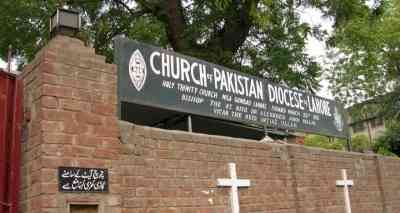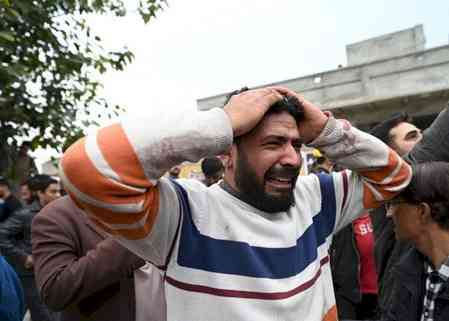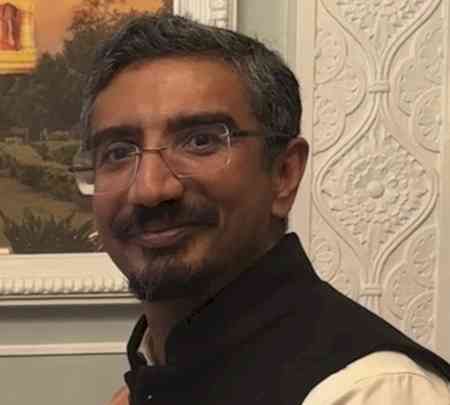Christians struggling in Pakistan due to relentless persecution: Report
The Christian minority in Pakistan is struggling due to relentless persecution and legal vulnerability, and the community, which comprises 1.6 per cent of the population, faces a society increasingly moving toward religious homogenisation, a report has said.

Islamabad, Aug 31 (IANS) The Christian minority in Pakistan is struggling due to relentless persecution and legal vulnerability, and the community, which comprises 1.6 per cent of the population, faces a society increasingly moving toward religious homogenisation, a report has said.
Pakistan is ranked at the eighth spot on Open Doors’ 2025 World Watch List of the most difficult countries in which to live as a Christian.
"In Pakistan, the weak - its tiny Christian minority - are struggling under the weight of relentless persecution and legal vulnerability," Greek lawyer and human rights advocate, Dimitra Staikou, said in an opinion piece in Geostrategic Media.
"The consequences of this marginalisation are not theoretical—they are brutal and immediate. On August 16, 2023, Jaranwala in Punjab became the site of the worst attack on Christians in Pakistan’s recent history. A mob destroyed 26 churches and 80 homes, accusing residents of blasphemy. Two years later, justice remains elusive. Not a single perpetrator has been convicted, while Christians seeking accountability face intimidation and threats from extremist groups," the report stated.
Blasphemy laws in Pakistan are being used as a tool of persecution. Though rarely leading to executions, even accusations lead to mob violence. On June 4, an anti-terrorism court in Faisalabad acquitted 10 suspects involved in the arson of a church and the looting of a Christian home. Despite the evidence, the police's inability resulted in these acquittals, a pattern expected to be followed in other cases. Meanwhile, Christian women and girls face increasing abductions, rape, and forced conversions, often with impunity for the people responsible for the crime.
"The scale of impunity is staggering. Of the 5,213 suspects arrested after the Jaranwala attacks, 4,833 were released, according to Amnesty International. A year later, 228 of those arrested were freed on bail, and 77 were fully acquitted," the report said. Amnesty International’s Deputy Regional Director for South Asia, Babu Ram Poudel, warned that such inaction fosters a 'climate of impunity' for perpetrators of violence."
On August 16, protests in Jaranwala, organised by the Victims’ Committee, demonstrated the government's failure to prosecute rioters or provide promised compensation. Lala Robin Daniel, the committee coordinator, voiced concern at the lack of progress and efforts being made to divide the community, as per the report.
Samson Salamat, president of the Rwadari Tehreek (Movement for Equality), slammed the absence of church leaders, politicians, and even government officials in showing solidarity. While addressing protesters, he said: “You have remained steadfast in your pursuit of justice for two years, and we believe your commitment will not waver."
Activists in Lahore have also reiterated these calls. Ghazala Shafique and Luke Victor stressed that the Jaranwala attacks reflect "deep-rooted intolerance and systemic discrimination" in Pakistan. Michelle Chaudhry, president of the Cecil and Iris Chaudhry Foundation, spoke about the dangers of the blasphemy laws and the urgent need for government action.
In the opinion piece in Geostrategic Media, Staikou stated: "Blasphemy charges remain a persistent threat. Those accused of insulting the Prophet Muhammad risk death sentences, while even unproven accusations can provoke violent mobs."
According to Staikou, protecting Christians in Pakistan requires revising blasphemy laws, ensuring effective administration of justice, and addressing systemic discrimination.
--IANS
akl/vd



 IANS
IANS 










